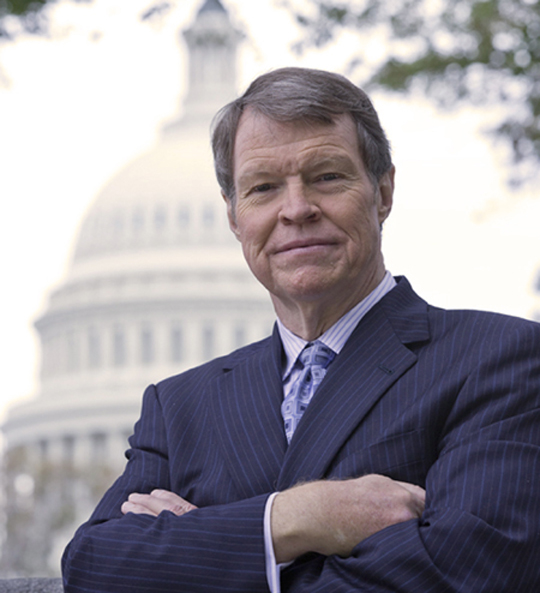
Merrill Matthews, Ph.D., is a resident scholar with the Institute for Policy Innovation, a research-based, public policy “think tank.” He is a health policy expert and opinion contributor at The Hill. He also serves on the Texas Advisory Committee of the U.S. Commission on Civil Rights.
Dr. Matthews is a past president of the Health Economics Roundtable for the National Association for Business Economics, the largest trade association of business economists. Dr. Matthews also served for 10 years as the medical ethicist for the University of Texas Southwestern Medical Center’s Institutional Review Board for Human Experimentation, co-author of On the Edge: America Faces the Entitlements Cliff, and has contributed chapters to several books, including Physician Assisted Suicide: Expanding the Debate and The 21st Century Health Care Leader and Stop Paying the Crooks (on Medicare fraud).
He has been published in numerous journals and newspapers, including The Wall Street Journal, Investor’s Business Daily, Barron’s, USA Today, Forbes magazine and the Washington Times. He was an award-winning political analyst for the USA Radio Network.
Dr. Matthews received his Ph.D. in Humanities from the University of Texas at Dallas.
Why Most Patients Say 'Hell, No' to Obamacare
Wisconsin, a state that had a successful HRP (not all state HRPs worked) until Obamacare essentially shut it down, required insurers to chip in as well, according to Mark E. Litow, a retired health actuary who served on the board of the Wisconsin HRP, and Merrill Matthews, IPI resident scholar, writing for RealClearHealth.com on February 16.
Experts Question GOP Approach to Pre-Existing Health Conditions
Only 200,000 people enrolled in the pools in part “because many HRPs did not offer financial assistance to lower-income participants, a few charged much higher premiums than Wisconsin, and because of some state-imposed limitations,” say Mark Litow, who was involved in Wisconsin’s risk pool, and Merrill Matthews, with IPI. “All of those problems are easily fixed,” they write in a RealClearHealth op-ed.
Explaining Conservatives' Decades-Long Support for Refundable Tax Credits
There is a reason why Republicans are coalescing around a refundable tax credit instead of direct subsidies for health insurance.
High Risk Pools Solve the Problem of Preexisting Conditions
One reason health insurance premiums exploded under the Affordable Care Act is the law’s requirement that health insurers accept anyone who applied for individual coverage, known as guaranteed issue.
A Three-Step Plan to Save the Effort to Repeal and Replace Obamacare
Republicans are getting perilously close to losing the momentum they had and will need to repeal and replace Obamacare.
Everything You Need to Know About the Consumer Financial Protection Bureau
Merrill Matthews recently called the CFPB the "most unaccountable organization in Washington ... an agency that neither the people’s elected representatives nor the president can control."
Three Cheers for President Trump's 'Core Principles' of Financial Reform
President Trump's recent financial reform executive order identifies six principles that should guide legislation to replace the Dodd-Frank law.
Pass Tax Reform, Then an Import Tariff Only if Needed
The Trump tax reform plan would encourage companies to be bring their production to the U.S., likely mitigating any perceived need for imposing an import tariff.
Trump Needs to Cut $10 Trillion in Federal Spending
President Trump is reportedly considering a plan that cuts up to $10 trillion in federal spending over 10 years; and if he gets his tax cuts passed, he'll need every penny to balance the budget.
Trump Inauguration: Positive Signs For Gas Sector As Power Transfers
Donald Trump took the oath of office Friday promising to bring jobs back to the US and put America first in matters of trade and foreign affairs. And a statement released by his White House as soon as the power transferred to Trump touted "an America first energy plan," promising to maximize the use of American energy resources, end dependence on foreign oil and scrap burdensome regulations.







